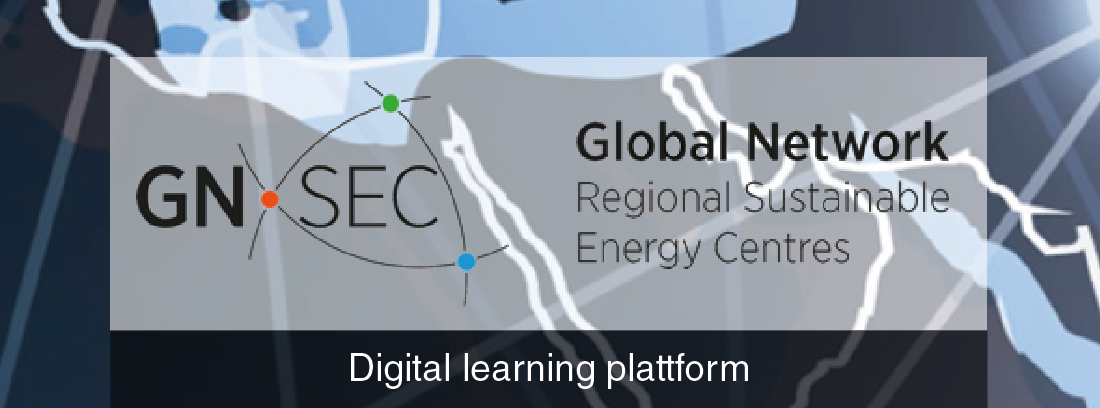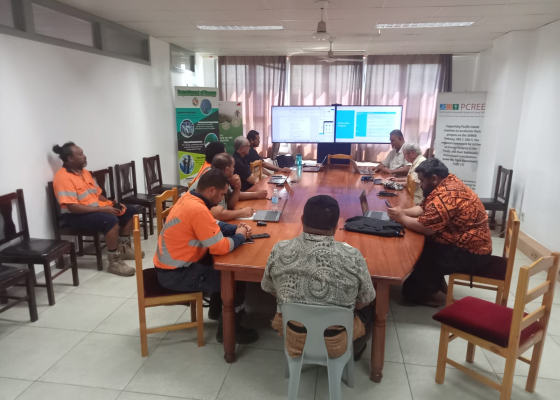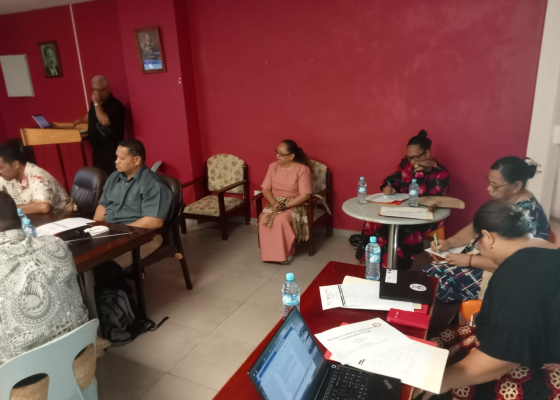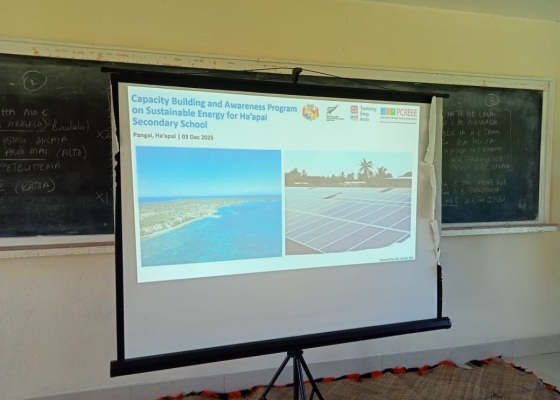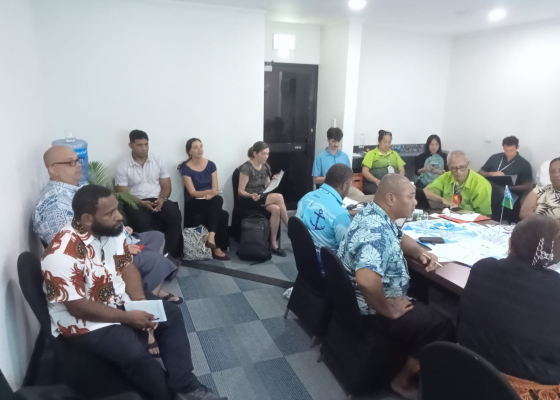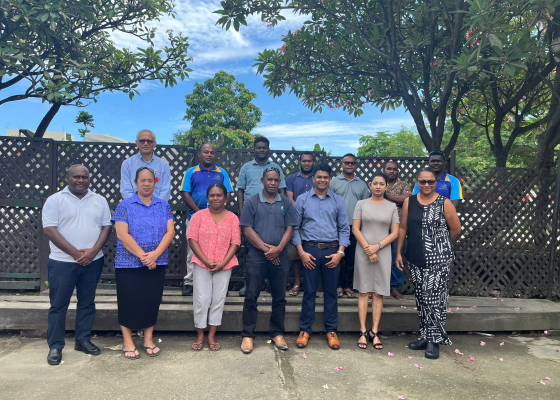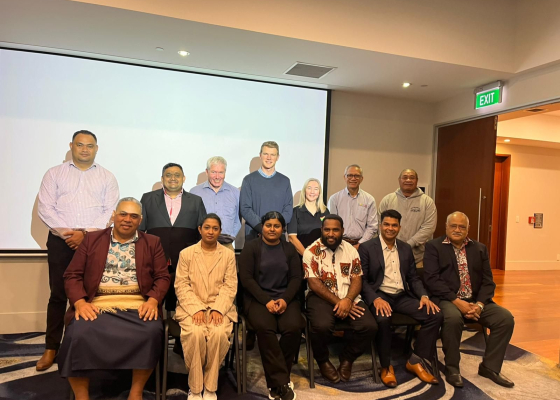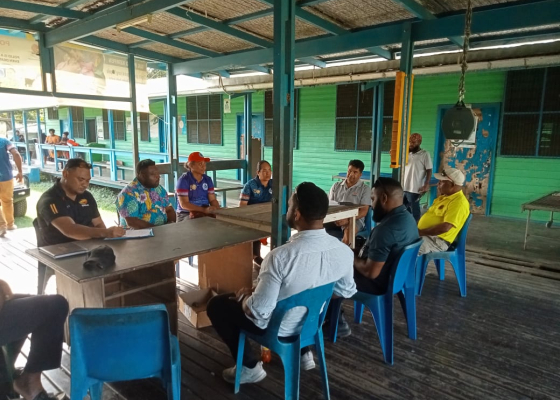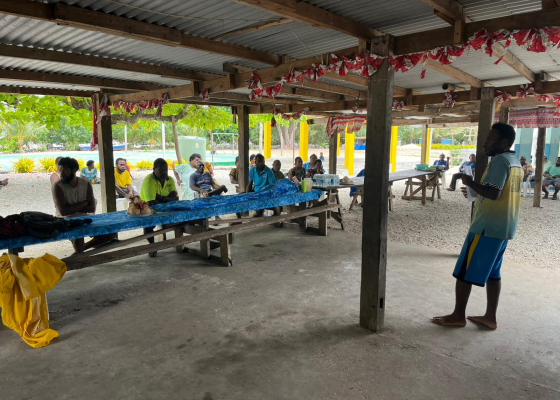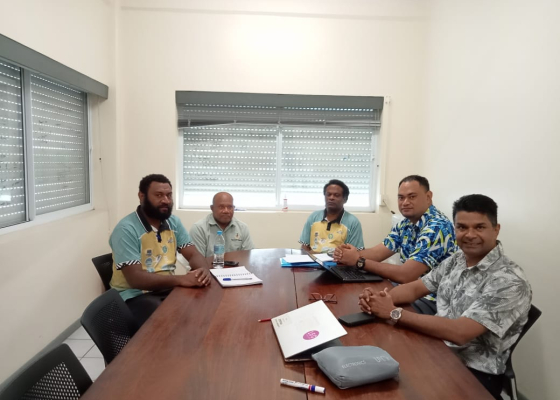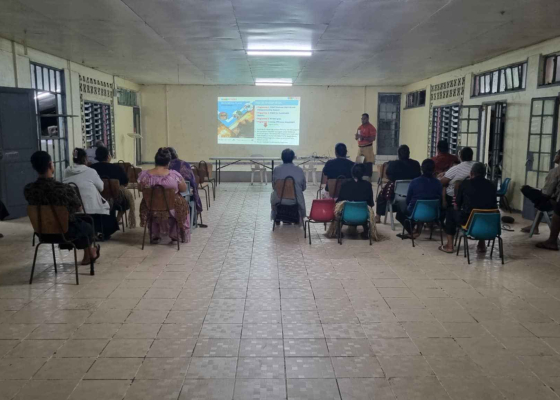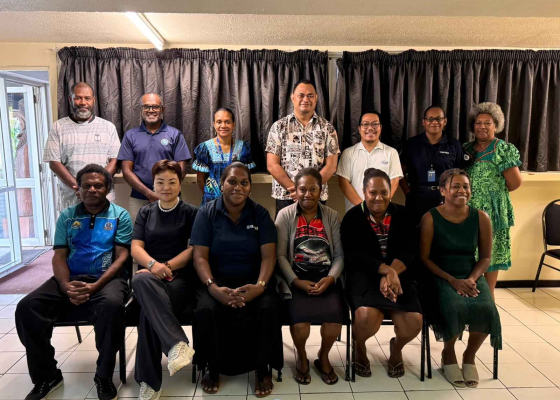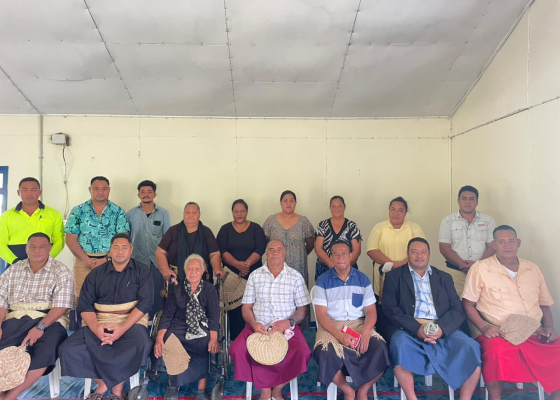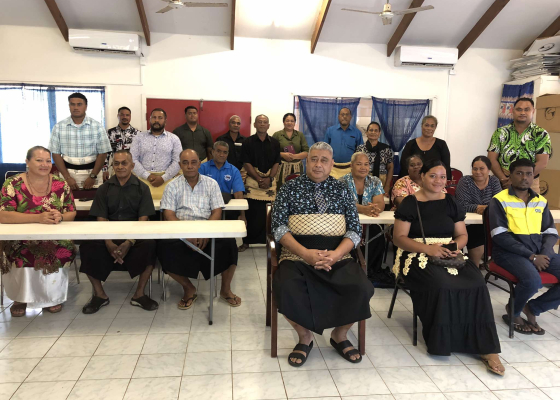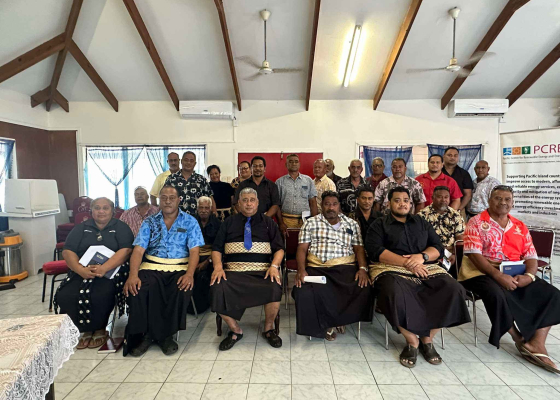National STAR C Project Coordinator - SPC (Tonga)
Requisition ID: 1497
Grade: SB4 - Local Professional (Junior & Mid Level)
Country: Tonga
Duty Station: Nuku'Alofa; missions to Papua New Guinea and international travel as required
Category: National Consultant
Type of Job Posting: Internal and External
Employment Type: NonStaff-Regular
Contract Duration: One year
Application deadline: 30-Jan-2023
Vacancy Announcement
TEMPORARY APPOINTMENT OF PROJECT PERSONNEL
Only nationals or permanent residents of the country of the duty station are considered eligible.
Female candidates are particularly encouraged to apply
ORGANIZATIONAL CONTEXT:
The United Nations Industrial Development Organization (UNIDO) is the specialized agency of the United Nations that promotes industrial development for poverty reduction, inclusive globalization and environmental sustainability. The mission of UNIDO, as described in the Lima Declaration adopted at the fifteenth session of the UNIDO General Conference in 2013 as well as the Abu Dhabi Declaration adopted at the eighteenth session of UNIDO General Conference in 2019, is to promote and accelerate inclusive and sustainable industrial development (ISID) in Member States. The relevance of ISID as an integrated approach to all three pillars of sustainable development is recognized by the 2030 Agenda for Sustainable Development and the related Sustainable Development Goals (SDGs), which will frame United Nations and country efforts towards sustainable development. UNIDO’s mandate is fully recognized in SDG-9, which calls to “Build resilient infrastructure, promote inclusive and sustainable industrialization and foster innovation”. The relevance of ISID, however, applies in greater or lesser extent to all SDGs. Accordingly, the Organization’s programmatic focus is structured in four strategic priorities: Creating shared prosperity; Advancing economic competitiveness; Safeguarding the environment; and Strengthening knowledge and institutions.
Each of these programmatic fields of activity contains a number of individual programmes, which are implemented in a holistic manner to achieve effective outcomes and impacts through UNIDO’s four enabling functions: (i) technical cooperation; (ii) analytical and research functions and policy advisory services; (iii) normative functions and standards and quality-related activities; and (iv) convening and partnerships for knowledge transfer, networking and industrial cooperation. Such core functions are carried out in Departments/Offices in its Headquarters, Regional Offices and Hubs and Country Offices.
The Directorate of Technical Cooperation and Sustainable Industrial Development (TCS) under the overall direction of the Director General, and in close collaboration with all relevant organizational entities within UNIDO, headed by a Managing Director, oversees the Organization's development of capacities for industrial development as well as industrial policy advice, statistics and research activities and the Organization's normative contribution to Member States and global development community in achieving the SDGs. The Directorate also ensures the application of strategies and interventions for sustainable industrial development related to Environment, Energy, SMEs, Competitiveness and Job creation, as well as Digitalization and Artificial Intelligence. Through coordination in-house and with Member States and industry stakeholders, it ensures that the services provided in these areas contribute toward effective and appropriate technical, business and policy solutions and are focused on results and on realizing any potential for scaling up and positioning UNIDO as a leading platform for industrial development in developing countries and global fora.
The Directorate houses the technical Divisions of Capacity Development, Industrial Policy Advice and Statistics (TCS/CPS); Circular Economy and Environmental Protection (TCS/CEP); Decarbonization and Sustainable Energy (TCS/DSE); SMEs, Competitiveness and Job Creation (TCS/SME); and Digital Transformation and AI Strategies (TCS/DAS). The Directorate also ensures close coordination and collaboration among the Divisions as well as with relevant entities in the Directorate of Global Partnerships and External Relations (GLO) and the Directorate of SDG Innovation and Economic Transformation (IET).
The Division of Decarbonization and Sustainable Energy (TCS/DSE) under the supervision of the Managing Director of the Directorate of Technical Cooperation and Sustainable Industrial Development (TCS), and in close coordination with other organizational entities within UNIDO, assists Member States in the transition to a sustainable energy future through the application of renewable energy solutions for productive uses, adoption of the efficient concepts of energy use by industry and the introduction of low-carbon technologies and processes. In transitioning to a sustainable energy future, the challenges of addressing energy poverty and climate change are an integral part of the Division's activities, as is the dissemination of relevant knowledge and technologies and paths to plan, manage and finance the energy transition. It collaborates closely on relevant and converging issues with the Climate and Technology Partnerships Division (IET/CTP) and analytical and strategic matters with TCS/CPS and ODG/SPU.
This position is located under the Energy Systems and Industrial Decarbonization Unit (TCS/DSE/ESD) which focuses on promoting sustainable energy solutions and infrastructure for industrial development. It promotes industrial decarbonization through crosscutting solutions, such as optimized energy management systems and the deployment of renewable energy technologies. Bringing together the supply and demand side for disruptive energy solutions, both technical and business related, the Unit fosters transformative change on the system level driven by the convergence of key technologies such as distributed generation, digitization and storage. The Unit is also responsible for coordinating dialogues and partnerships at national, regional and global levels to promote disruptive energy solutions and shape policy change for this. Finally, the Unit positions UNIDO strategically in the global energy and climate change forums and coordinates the Global Network of Regional Sustainable Energy Centres and related partnerships.
PROJECT CONTEXT:
Project Title: “Structuring of an International Network of Solar Technology and Application Resource Centres (UNIDO Project ID: 190370)”
The United Nations Industrial Development Organization (UNIDO) and the International Solar Alliance (ISA), with funding of the Government of France, are implementing the above mentioned project. The overall objective it to create a strong network of institutional capacities within ISA Member States to enhance quality infrastructure (QI) for the uptake of solar energy product and service markets, particularly in LDCs and SIDS.
The specific goals of the project is to enhance institutional, technical and networking capacity of member countries by establishing the Network of Solar Technology Application Resource Centres (STAR C). Under this partnership, ISA and UNIDO have embarked on the first operational phase of the STAR C Project. This project aims to remove key barriers with respect to: (i) lack of quality and certification frameworks for solar energy products and services, (ii) insufficient local capacities for market uptake, and (iii) lack of south-south and triangular solar partnerships and networks.
The first phase of the STAR C project will focus on the Economic Community of West African States (ECOWAS), the East African Community (EAC), the Pacific Community (SPC)/ Pacific Island Forum (PIF) and partly also the Hindu Kush Himalaya region To have more impact and to create economies of scale, the STAR C has adopted a regional approach, which aims at cross-border harmonisation of solar product, service and qualification standards, shared resources and joint implementation on national level.
The STAR C is part of the south-south and triangular activities of the centres under the GN-SEC and ISA platforms. The STAR C implementation will benefit from the established institutional infrastructure and lessons learned of these interventions. The STAR C project builds a strong partnership with the GN-SEC centres and regional QI infrastructure bodies and their national focal institutions (e.g. energy ministries and national standardisation bodies). ECREEE in Cape Verde, EACREEE[1] in Uganda, REEECH in Nepal and PCREEE in Tonga are already involved to some extend in regional standardisation processes and facilitate regional adoption and convening of key stakeholders (e.g. ministries, standardisation bodies, training and testing institutes) within the respective region.
As part of the institution strengthening activities, the STAR C project launches call for four STAR Coordinators, which will strengthen the capacities of future STAR Centres. In this regards, UNIDO and ISA is recruiting four Project Coordinators, each will be stationed in one of the Member States of the regional centres(ECREEE, EACREEE, PCREEE, REEECH). S/he will support a wide range of activities geared towards the implementation of the STAR C project interventions.
Further information on the STAR C Project is available at:
http://starc.gn-sec.net | https://isolaralliance.org | https://open.unido.org/projects/M0/projects/190370
DUTIES AND DELIVERABLES:
Under the supervision of the UNIDO Project Manager, the ISA Programme Specialist, a regional Centre Director/Senior Staff and in close coordination with the project management team in UNIDO Headquarters, each Project Coordinator (PC) will support the execution of key technical, administrative, and policy functions of the STAR C Project. S/he will support the effective implementation of assigned project activities in line with established work plans, participate in key technical meetings, support the organization of trainings and capacity-building events, and most importantly support the identification and development of new project or partnership opportunities outlined in the table below.
The PC will support the preparation of joint STAR C Project Supervisory Committee meetings and coordinate closely with the National/Regional Energy Quality infrastructure committees and other relevant energy stakeholders and partners. There is possibility to extend the contract for additional year depending on the demonstrated performance and commitment of the expert.
The Project Coordinators are expected to work under minimal supervision for performing a full range of project managerial, technical and administrative support functions. Each PC will provide support to country level and regional activities with focus as follows:
Coordinator 1: Based in Senegal, supports regional activities of the ECOWAS;
Coordinator 2: Based in Tonga, covers SPC with key support to Papua New Guinea;
Coordinator 3: Based in Uganda, covering regional EAC activities;
Coordinator 4: Based in Bhutan, covering regional REEECH/ICIMOD activities and supporting Bhutan.
Each applicant shall explicitly indicate the region (duty station) for which s/he is applying. Ideally, candindates are already working within solar related institutions. Specifically, each STAR C Project Coordinator has the following main duties and responsibilities:
Management and coordination of regional STAR C Unit:
• Act as regional/national focal point for the STAR C activities; represent STAR C in national and regional events;
• Establish and coordinate a regional network of public and private key stakeholders in the solar sector; maintain a database to be used by UNIDO, ISA and the GN-SECs;
• Establish and maintain close ties with the GN-SECs and regional/national quality infrastructure institutions; Contributes to knowledge networks and communities of practice;
• Ensure effective data collection, knowledge management and contribute to the STAR C website, information system and communication;
• Lead, manage and coordinate the day-to-day administrative, communications and technical operations of the project regional activities;
• Provide inputs to the STAR C annual work plans; organise regular meetings with key regional stakeholders;
• Ensures that the quality of project inputs meet the expected standards and are sufficient to produce project outputs and targets;
• Manages critical issues, providing backstopping and proactively developing redress solutions to the overall processes of project implementation;
• Ensures effective and continued technical monitoring and report of project performance to UNIDO and ISA project teams and the preparation of high quality and results-oriented progress reports.
Outputs to be achieved: Effective management, sound coordination and timely implementation of project activities conforming with UNIDO, ISA and France policies and regulations.
Deliverables: Implementation matrix; monitoring & evaluation plans; cascading annual work plans into workable actions, progress reports, documentation on project.
Project development, implementation, and monitoring:
• Develops new regional/national STAR C projects and initiatives; including project concepts and documents;
• Implements the project work plan and ensures that the project remains within the tolerance level of the approved work plan;
• Ensure effective field implementation of project activities across all components as outlined in the project document (prioritizing the conservative scenario with a circumspect view of optimistic interventions);
• Take leadership in the country level excution of the project activities and facilitate knowledge management ;
• Prepare ToRs for expert consultants, procurements, meetings, and workshops;
• Conducts regular monitoring to ensure achievement of targets in line with the annual work plans and project implementation at all levels complies with the agreed project standard operating procedures;
• Prepares quarterly project reports, using standard template and timely presents to the project team;
• Provides substantive inputs and data for external project reports as necessary and required by the project teams;
• Identifies best practices and lessons learnt from the project and from other initiatives that feeds in to the project overarching goals and objectives;
• Attend regular online meetings with the project management teams at UNIDO, ISA and GN-SECs;
Outputs to be achieved: Implementation and Coordination of project activities conforming with donors and partners’ procedures.
Deliverables: Implementation of the work plan; monitoring and evaluation plan; annual work plan (incl. budget) and progress report, documentation on the PSC meeting.
Provision of technical services:
• Regularly collect solar data and feed it into the STAR C information system; contribute to the establishment of a STAR data collection system;
• Leads in generating knowledge products such as best practices and lessons learned for knowledge sharing;
• Provide advice on solar related issues to STAR C beneficiaries as required;
• Organise solar conferences, trainings and capacity building workshops as required;
• Assist GN-SECs, Government in mainstreaming QI aspects of solar energy into regional/national QI policy and processes; advise on international solar standards;
• Contribute to the development of new QI standards for solar products, services and curricular; support UNIDO/ISA contracted consultants;
• Contribute to the improvement of solar curricular and work closely with universities and vocational centres;
• Carry out other project contingent activities, new identified concepts as assigned by the ISA/UNIDO project teams.
Strategic Partnerships & Resource Mobilization:
• Establish and maintain excellent relationships with the relevant partners (governments institutions, QI/QF boards, private sector and other principal counterparts of the project;
• Identify and work with key partners and stakeholders to ensure synergies with other projects/initiatives and to avoid replication of activities among actors;
• Identifies resource mobilization opportunities of the project, and prepares substantive briefs on possible areas of cooperation.
Outputs to be achieved: Project components effectively and efficiently executed; synergies and effective coordination with other partners; actively engaged with national or regional projects development.
Deliverables: Documentation of project activities (e.g. contracts, reports, policies, standards, feasibilities); facilitate signed endorsements, co-funding agreements; developed and submitted project concepts; press releases and advocacy materials.
REQUIRED COMPETENCIES:
Core Values
WE LIVE AND ACT WITH INTEGRITY: work honestly, openly and impartially.
WE SHOW PROFESSIONALISM: work hard, competently in a committed and responsible manner.
WE RESPECT DIVERSITY: work together effectively, respectfully and inclusively, regardless of our differences in culture and perspective.
Key Competencies
WE FOCUS ON PEOPLE: cooperate to fully reach our potential – and this is true for our colleagues as well as our clients. Emotional intelligence and receptiveness are vital parts of our UNIDO identity.
WE FOCUS ON RESULTS AND RESPONSIBILITIES: focus on planning, organizing and managing our work effectively and efficiently. We are responsible and accountable for achieving our results and meeting our performance standards. This accountability does not end with our colleagues and supervisors, but we also owe it to those we serve and who have trusted us to contribute to a better, safer and healthier world.
WE COMMUNICATE AND EARN TRUST: communicate effectively with one another and build an environment of trust where we can all excel in our work.
WE THINK OUTSIDE THE BOX AND INNOVATE: To stay relevant, we continuously improve, support innovation, share our knowledge and skills, and learn from one another.
MINIMUM ORGANIZATIONAL REQUIREMENTS:
Education: Advanced university degree (Master's level) in energy policy, environmental studies, business, economics, or any other relevant discipline with a specialization in energy or sustainability; a focus on renewable energy is an asset;
Technical and Functional Experience:
- A minimum of three (3) years of practical work experience in the renewable energy sector.
- Demonstrated knowledge regarding various solar energy technologies (e.g. PV, SHC, CSP), solutions (utilty scale, distributed, mini-grids), policy, regulation, quality infrastructure aspects, product and service standards, as well as qualification and curricular.
- Good track-record of implemented solar energy related projects or assignments; experience with solar qualification and standards is an asset;
- Good contact network to key stakeholders of the solar energy sector within the respective region; ideally, the expert works from a solar energy related institutation;
- Previous experience in working with/for key stakeholders within the regions energy/qualification sectors, including within a utility, regional quality infrastructure agencies is desirable;
- Experience in dealing with governments, international standards organizations, regional entities, international development partners, including United Nations in similar assignment is desirable;
- Experience with full project cycle management and implementation is an asset;
- Good writing and communication skills
- Knowledge of solar energy planning software and tools is an asset
Languages: Fluency in written and spoken English is required. Fluency and/or working knowledge of another official UN language particularly French (for the ECOWAS Project Coordinator) is desirable.
[1] For example, various solar quality standard schemes in Kenya
This appointment is limited to the specified project(s) only and does not carry any expectation of renewal.
Employees of UNIDO are expected at all times to uphold the highest standards of integrity, professionalism and respect for diversity, both at work and outside.
Only persons who fully and unconditionally commit to these values should consider applying for jobs at UNIDO.
All applications must be submitted online through the Online Recruitment System. Correspondence will be undertaken only with candidates who are being considered at an advanced phase of the selection process. Selected candidate(s) may be required to disclose to the Director General the nature and scope of financial and other personal interests and assets in respect of themselves, their spouses and dependents, under the procedures established by the Director General.
Visit the UNIDO website for details on how to apply: www.unido.org
NOTE: The Director General retains the discretion to make an appointment to this post at a lower level.
Notice to applicants:
UNIDO does not charge any application, processing, training, interviewing, testing or other fee in connection with the application or recruitment process. If you have received a solicitation for the payment of a fee, please disregard it. Vacant positions within UNIDO are advertised on the official UNIDO website. Should you have any questions concerning persons or companies claiming to be recruiting on behalf of UNIDO and requesting payment of a fee, please contact: recruitment@unido.org
Original Link :National STAR C Project Coordinator - SPC (Tonga) (unido.org)
Upcoming Events
-
03/25/2026 to 03/26/2026
-
03/30/2026 to 04/03/2026
-
04/09/2026 to 04/10/2026
-
04/27/2026
-
04/27/2026 to 04/29/2026






